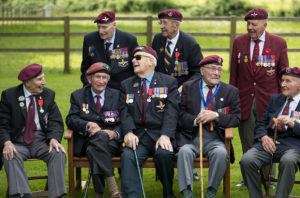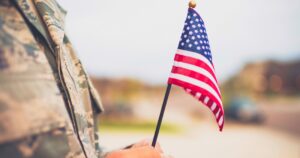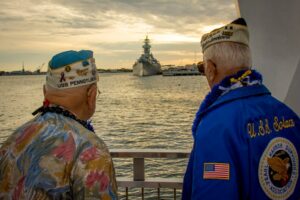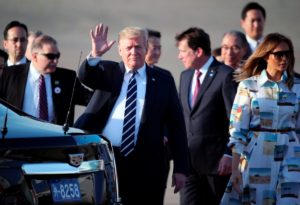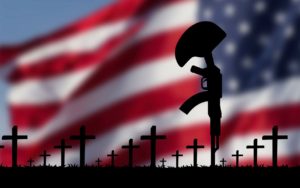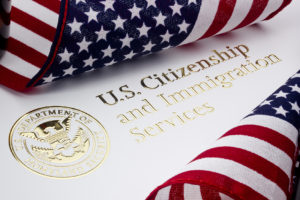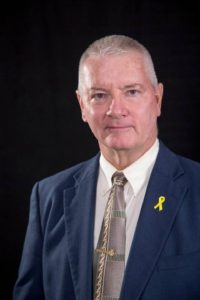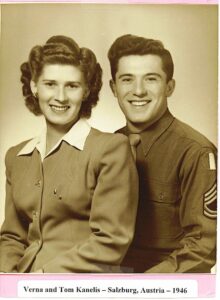
Take a gander at this lovely couple. They are my late uncle and aunt, Tom and Verna Kanelis. They played a big part in my life and in the lives of my wife and sons.
I am thinking of them this week as we prepare to celebrate Thanksgiving. You may ask why. I will tell you.
They visited me once when I was a teenager stationed at a U.S. Army post far from home … for the first time, I should add. They made me feel “at home” on the other side of our vast nation.
I gave thanks to them in the moment for their presence in my life. I am doing so now.
It was Thanksgiving 1968. I had completed my Army basic training a month earlier in Fort Lewis, Wash. I got orders to report to Fort Eustis, Va., where I would attend aircraft maintenance school, learning how to service twin-engine OV-1 Mohawk airplanes.
Thanksgiving approached and we got word that we could invite anyone we wanted. I called Tom and Verna and invited them to join me for a holiday meal at Fort Eustis. They accepted. Here is where it gets so very pleasantly strange.
Tom was an Army colonel. He served as a staff officer for the Joint Chiefs of Staff in Washington, D.C. He was a decorated infantry officer, earning the Bronze Star with valor after seeing intense combat during the Korean War. He had enlisted in 1943, then went to officers candidate school to earn his commission. He served heroically.
When he and Verna agreed to drive two hours south from D.C. to Fort Eustis, I added his name to the guest list, noting that it would include “Col. and Mrs. Tom Kanelis.”
The commanding officer of our training battalion was a lieutenant colonel. Someone on his staff noted that an active-duty “full bird colonel” was coming and Lt. Col. Wolfe wanted to make sure Col. and Mrs. Kanelis were treated, well, accordingly.
Understand that I am watching all this through the eyes of a late-stage teenager. It was akin to an out-of-body experience. I was far from my home in Portland, Ore. I was preparing to learn an Army skill for which I had no experience. I might be headed to war in Vietnam. I was nervous.
My uncle and aunt arrived on Thanksgiving for dinner. I greeted them as they approached the mess hall. We went inside. Lt. Col. Wolfe greeted Col. and Mrs. Kanelis and damn near tripped over himself trying to ensure that Col. Kanelis and his wife were welcome and comfortable. I watched from nearby and could barely contain the urge to bust out laughing.
Then came the question from Lt. Col. Wolfe: “Would you like to eat in the officers’ mess or with the men.” Tom didn’t blink, flinch or hesitate. “I prefer to eat with the men.”
I knew precisely in that moment what Tom had in mind. He did not want to expose me to ridicule from my enlisted colleagues that I was getting preferred treatment just because I happened to be related to someone who outranked the battalion CO.
We had our meal. I enjoyed the company of two people I loved very much. They made my first Thanksgiving away from home one of the more memorable experiences of my life.
They’re both gone now. I miss them terribly. As for Lt. Col. Wolfe, I don’t recall ever discussing that day with him during my time at Fort Eustis. I hope he appreciated the self-control I demonstrated by not laughing out loud at what I witnessed.
